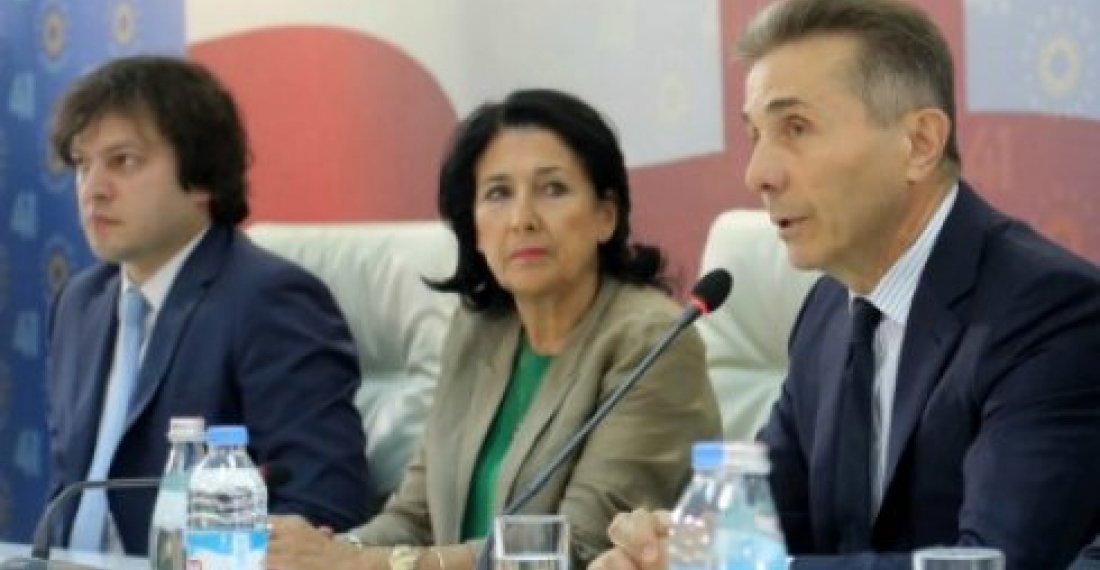Bidzina Ivanishvili has thrown his full weight, and that of his Georgian Dream party, behind Salome Zurabishvili ahead of presidential elections to take place in Georgia on Sunday (28 October). Speaking in a televised press conference with journalists from Georgia's three main broadcasters on Tuesday, Ivanishvili called on his party members to stop bickering about Zurabishvi and follow the party position of supporting her candidacy. Ivanishvili also asked undecided voters to rally behind Zurabishvili.
In the marathon interview which lasted more than two hours Ivanishvili touched on a number of controversies that have dominated Georgian politics in recent months and which are mainly related to corruption and the rule of law. He said that his recent return to mainstream politics was to ensure that Georgian Dream remains an effective political force and that he will implement changes in the party over the next year.
As expected, Ivanishvili's interview received very mixed response, with GD supporters hailing it as a genuine reflection of the current reality, whilst opposition parties, and some civil society organisations, strongly criticised Ivanishvili's stance on governance and media freedom.
Elections for the largely symbolic post of president will take place in Georgia on Sunday, 28 October. Opinion polls are showing Salome Zurabishvili in the lead, but with a strong showing by opposition candidate Grigol Vashadze, who is supported by the United National Movement. Other prominent candidates include David Bakradze and David Usupashvili.
source: commonspace.eu
photo: Georgian Dream Chairman Bidhzina Ivanishvili with presidential candidate Salome Zurabsihvili (archive picture)







